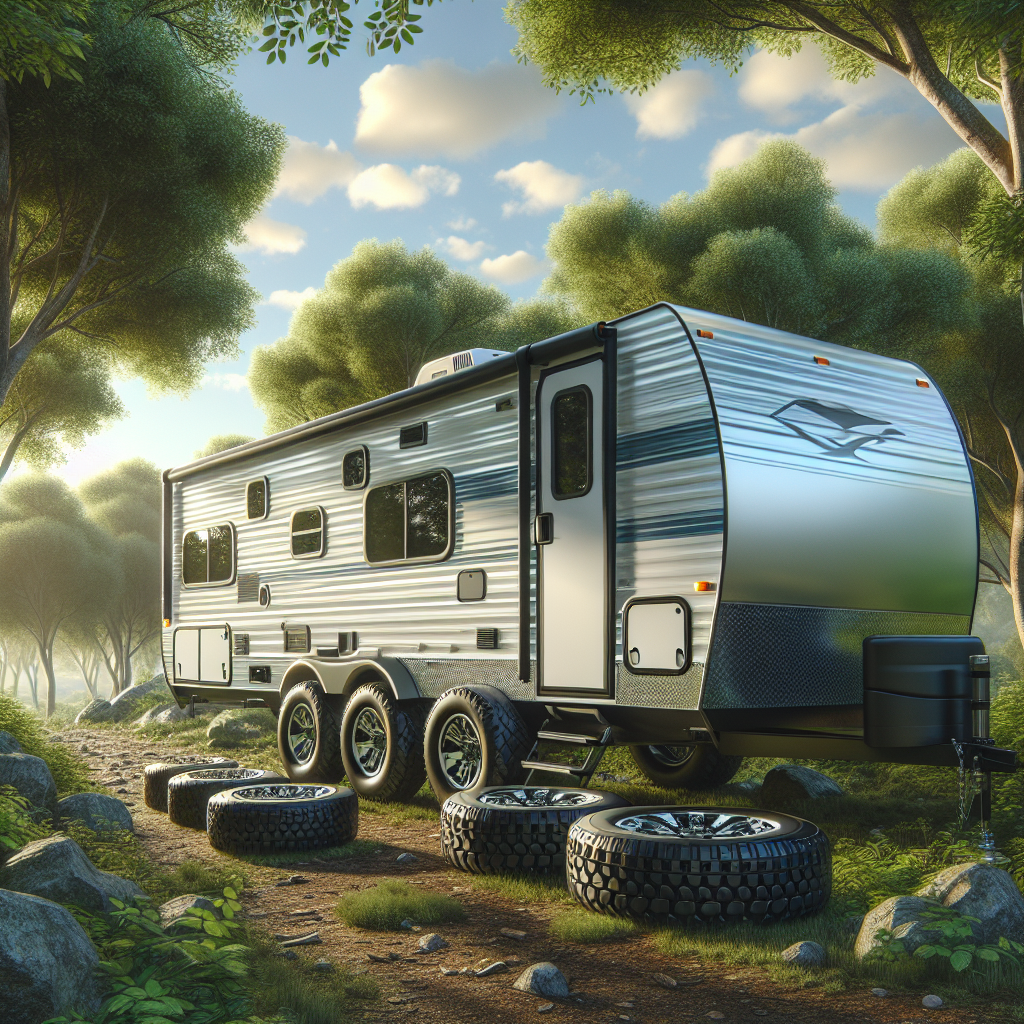Maintaining the correct tire pressure for your camper trailer is crucial for ensuring optimal performance and safety on the road. Tire pressure directly affects how well your trailer handles and how efficiently it uses fuel. Under-inflated tires can lead to increased rolling resistance, which not only decreases fuel efficiency but also increases tire wear and the risk of blowouts.
Conversely, over-inflated tires can cause a harsh ride and may lead to a loss of traction, particularly on uneven surfaces. To achieve the right balance, it's essential to consult your trailer's manufacturer specifications, typically found on a sticker inside the door frame or in the owner’s manual. Here are some key points to consider:
- Check Regularly: Tire pressure should be checked at least once a month and before long trips.
- Temperature Influence: Tire pressure can fluctuate with temperature changes; check when the tires are cold for the most accurate reading.
- Load Variations: Adjust tire pressure according to the load your trailer is carrying, as heavier loads require higher pressure.
By understanding and regularly monitoring your tire pressure, you can significantly reduce the chances of tire-related issues. Remember, proper tire maintenance is a key factor in safe towing. Tow with peace of mind, knowing that trailerwatchdog is standing guard.
Importance of Maintaining Correct Tire Pressure
Maintaining the correct tire pressure for your camper trailer is more than just a routine check; it's a vital aspect of safe and efficient travel. Proper tire pressure affects various factors, including fuel efficiency, handling, and tire longevity.
When tires are inflated to the manufacturer's recommended pressure, they provide optimal contact with the road. This enhances traction, which is crucial for safe towing, especially in adverse weather conditions. Under-inflated tires can lead to poor handling, making it difficult to control the trailer during turns or sudden stops, thereby increasing the risk of accidents.
Moreover, tire pressure has a direct impact on fuel consumption. Under-inflated tires can cause the engine to work harder, thus consuming more fuel. In fact, studies have shown that maintaining the correct tire pressure can improve fuel economy by up to 3.3%. This not only saves you money but also reduces your carbon footprint, making it an environmentally friendly choice.
Additionally, proper tire maintenance extends the life of your tires. Tires that are consistently under or over-inflated wear unevenly, leading to premature replacement. By keeping your tires at the correct pressure, you can maximize their lifespan and ensure a safer, smoother ride.
Recommended Tire Pressure for Different Trailer Types
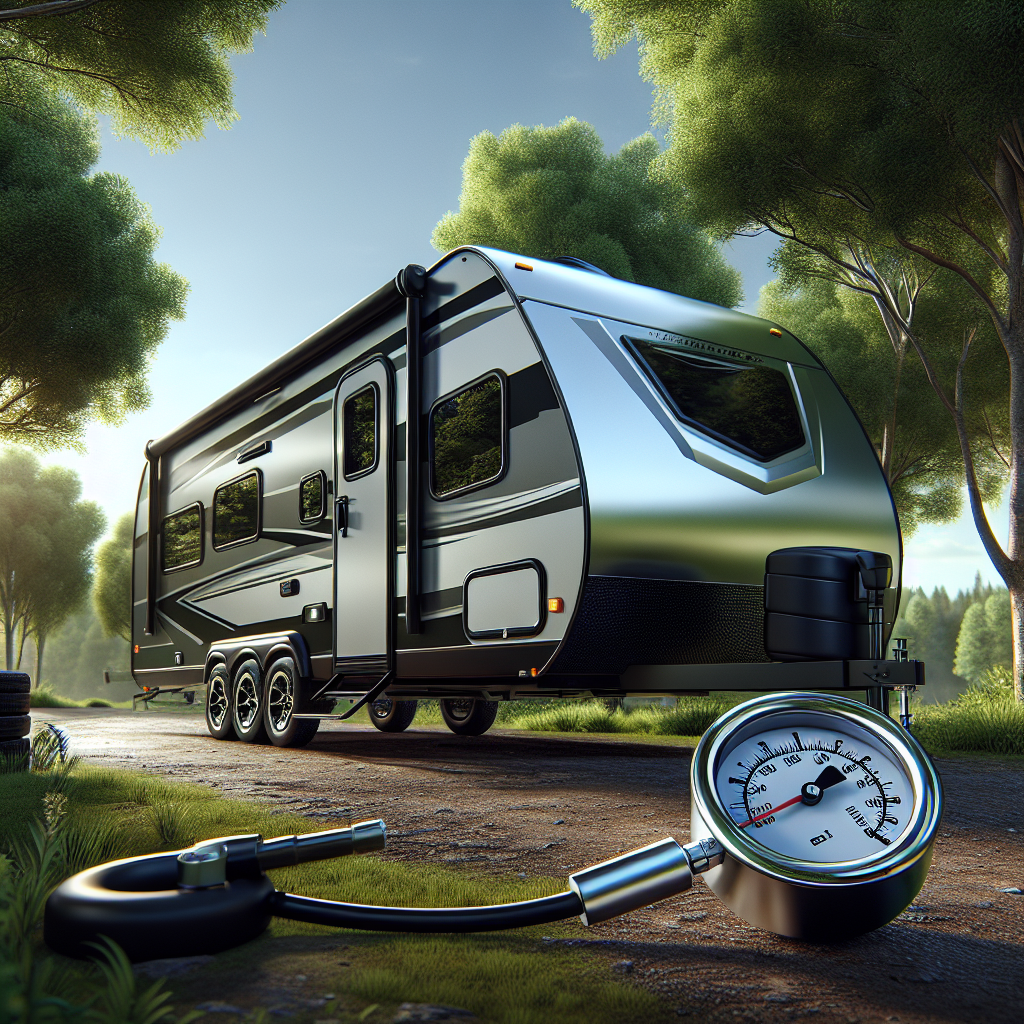
Understanding the recommended tire pressure for various types of trailers is essential for ensuring optimal performance and safety. Different trailers have distinct weight capacities and designs, which means their tire pressure requirements can vary significantly.
Here’s a breakdown of recommended tire pressures for different trailer types:
- Camper Trailers: For most camper trailers, the ideal tire pressure typically ranges from 30 to 35 PSI. It’s crucial to check the tire placard or the owner's manual for specific recommendations based on the trailer's weight.
- Utility Trailers: Utility trailers often require higher pressures, generally between 50 to 70 PSI, depending on the load being carried. Always consult the manufacturer’s guidelines to ensure safety.
- Boat Trailers: Boat trailers usually have a recommended tire pressure of 40 to 50 PSI, which helps in maintaining stability while towing on wet and slippery roads.
- Horse Trailers: Given their unique design and weight distribution, horse trailers typically require 30 to 50 PSI. It’s essential to regularly monitor the pressure, especially when transporting live animals.
Remember that tire pressure can change with temperature fluctuations and load conditions. For the most accurate readings, it's best to check tire pressure when the tires are cold. Keeping your tires inflated to the correct pressure not only enhances safety but also improves the overall towing experience.
How to Check and Adjust Tire Pressure
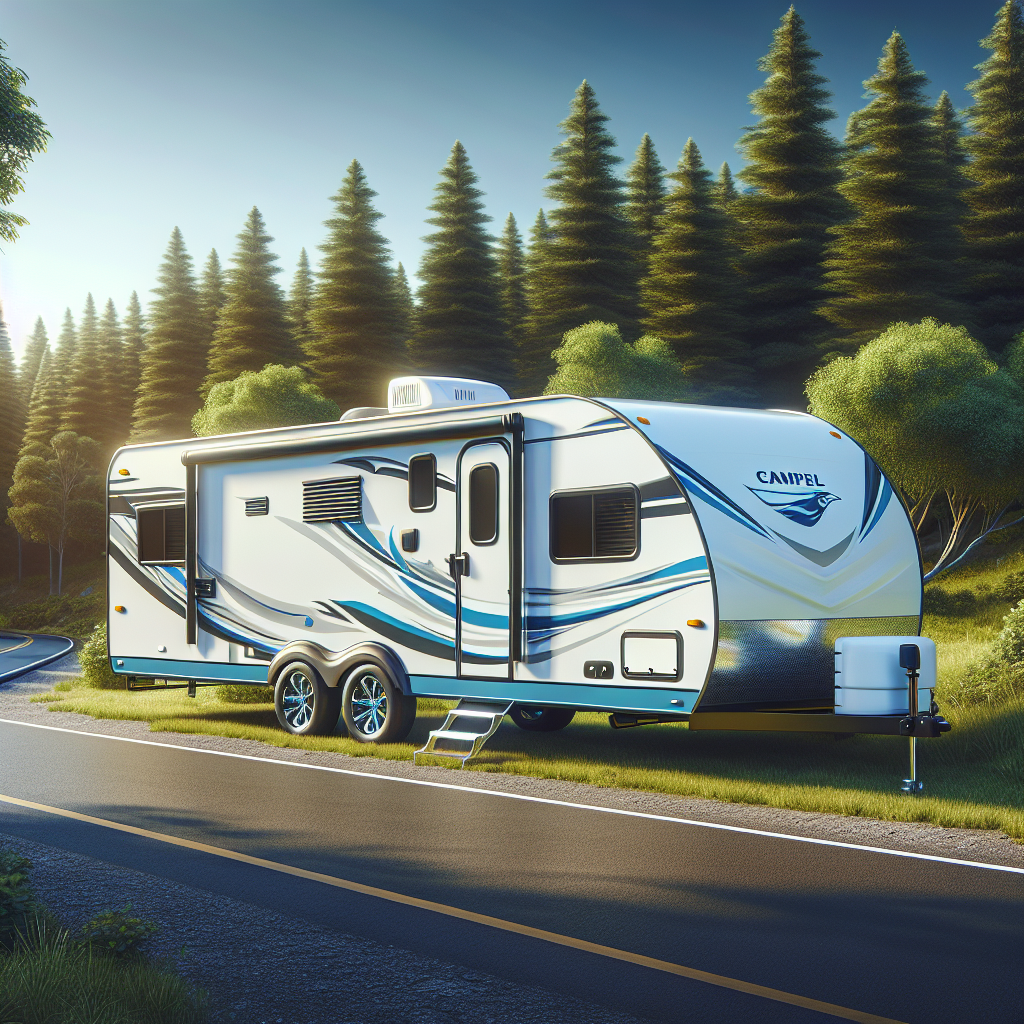
Maintaining the correct tire pressure for your camper trailer is a crucial aspect of safe towing. Knowing how to check and adjust tire pressure is essential for ensuring that your tires perform optimally. Here’s a simple step-by-step guide to help you monitor and adjust your tire pressure effectively:
- Gather Necessary Tools: You will need a reliable tire pressure gauge and an air compressor. Many service stations also have air compressors available for public use.
- Check Tire Pressure: Start by removing the valve cap from the tire you wish to check. Press the tire pressure gauge onto the valve stem firmly. The gauge will provide a reading of the current tire pressure. Ensure that you do this when the tires are cold for the most accurate measurement.
- Compare with Recommended Pressure: Cross-check the reading with the manufacturer’s recommended tire pressure for your specific trailer type. This information can usually be found on a placard located on the trailer or in the owner’s manual.
- Adjust as Necessary: If the pressure is too low, add air using an air compressor until it reaches the recommended level. If the pressure is too high, release some air by pressing the valve stem until the desired pressure is achieved.
- Recheck the Pressure: After adjusting, it’s wise to check the pressure again to ensure it is within the recommended range.
- Replace Valve Caps: Don’t forget to put the valve caps back on after checking and adjusting the tire pressure, as they help keep dirt and moisture out of the valve.
Regularly monitoring and adjusting your tire pressure will not only enhance the safety of your towing experience but also prolong the lifespan of your tires.
Consequences of Incorrect Tire Pressure
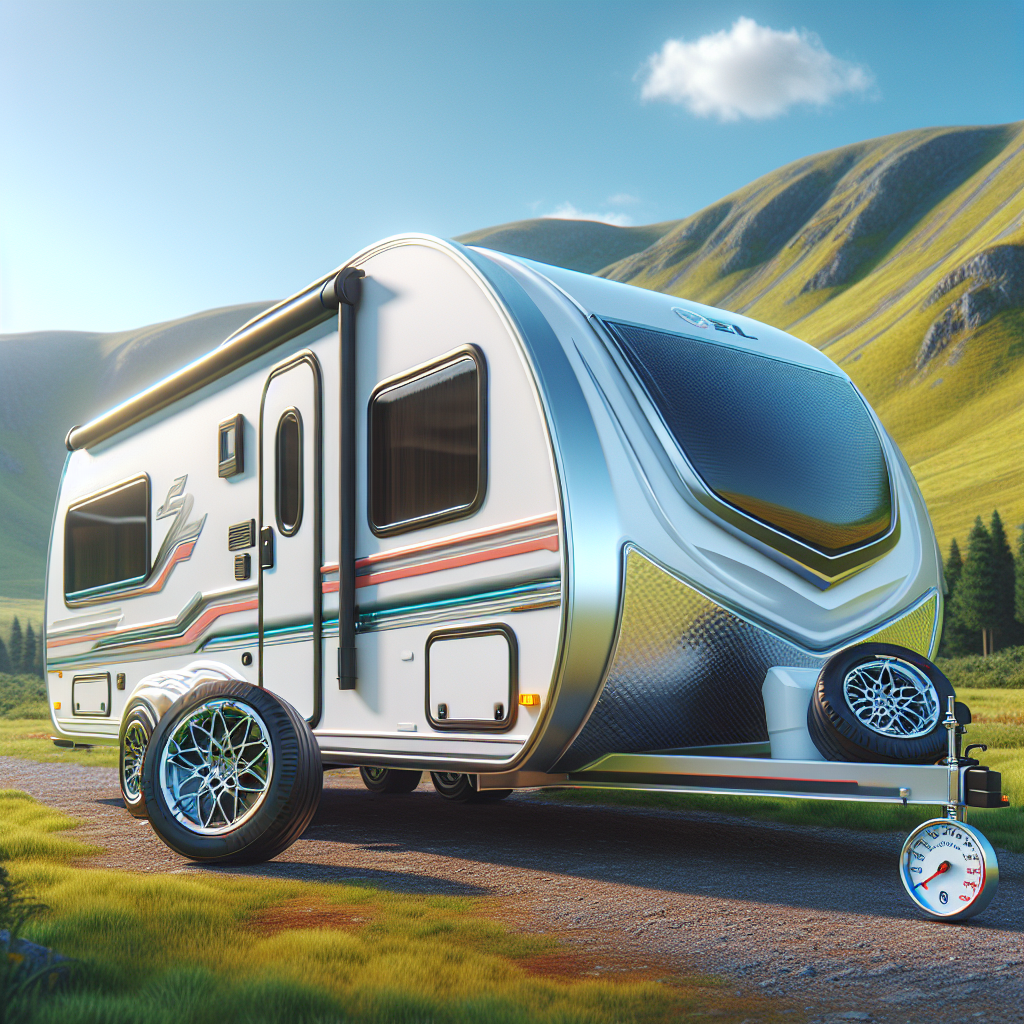
Maintaining the correct tire pressure is not just a matter of convenience; it plays a vital role in the overall safety and performance of your camper trailer. Understanding the consequences of incorrect tire pressure is crucial for every trailer owner. Here are some of the serious repercussions that can arise from neglecting tire pressure:
- Poor Fuel Efficiency: Under-inflated tires create more rolling resistance, leading to decreased fuel efficiency. You may find yourself making more frequent stops at the gas station, which can significantly increase your towing costs.
- Increased Tire Wear: Tires that are not maintained at the correct pressure tend to wear unevenly. This can lead to a shorter lifespan for your tires, resulting in premature replacements that could have been avoided.
- Reduced Handling and Stability: Incorrect tire pressure can severely affect your trailer's handling and stability. Over-inflated tires may lead to a harsh ride, while under-inflated ones can cause excessive sway, making it difficult to control the trailer, especially in adverse weather conditions.
- Higher Risk of Blowouts: Driving on tires with improper pressure significantly increases the risk of blowouts. An unexpected tire failure while towing can lead to catastrophic accidents, endangering you, your passengers, and other road users.
- Damage to Suspension Components: Beyond just the tires, incorrect pressure can put extra strain on your trailer's suspension system. This can lead to costly repairs and a decrease in overall performance.
Being proactive about tire pressure not only enhances your safety but also ensures a smoother and more economical driving experience. Regular checks and adjustments can help you avoid these negative outcomes.
Tips for Optimal Trailer Tire Maintenance
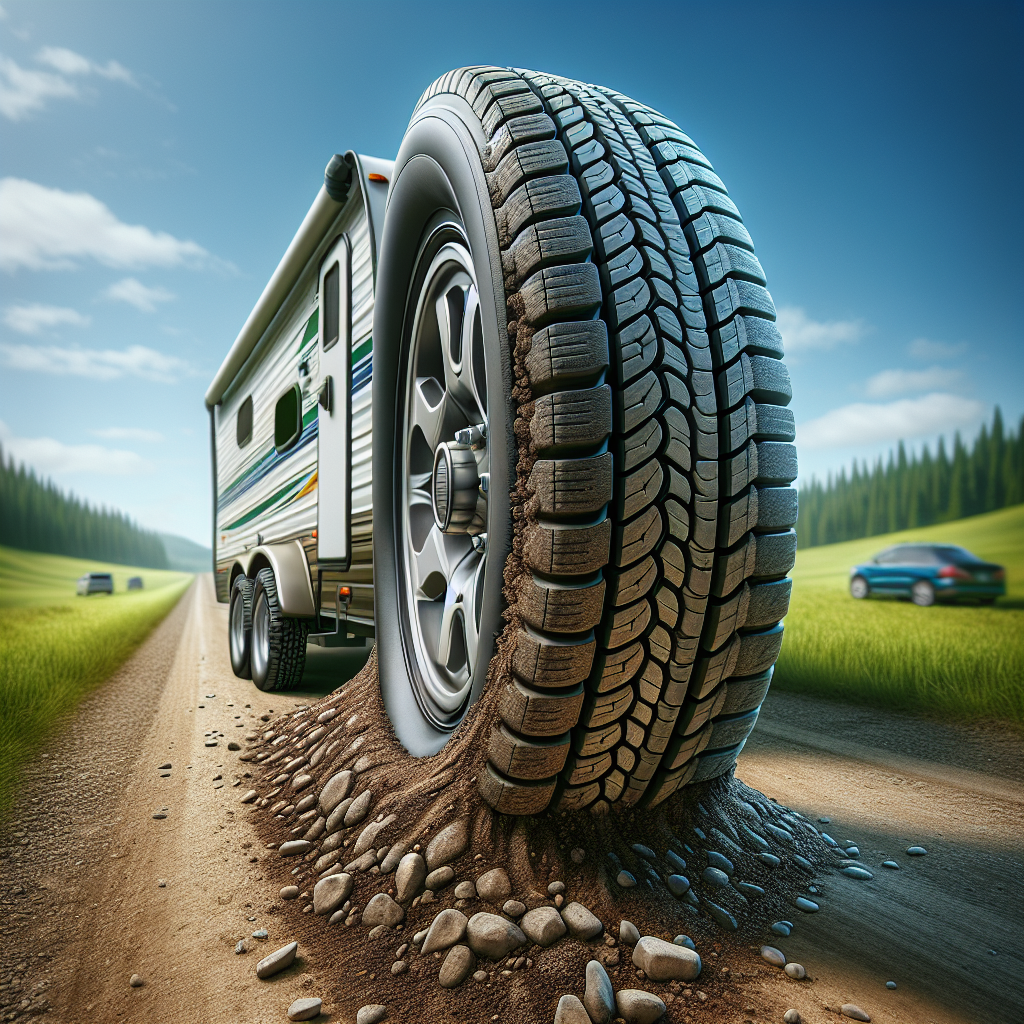
Ensuring the longevity and performance of your trailer tires requires consistent maintenance and attention to detail. Here are some essential tips for optimal trailer tire maintenance that every trailer owner should follow:
- Regular Pressure Checks: Make it a habit to check your tire pressure at least once a month, and before long trips. Utilize a reliable tire pressure gauge to ensure accuracy.
- Inspect for Wear and Tear: Routinely examine your tires for any signs of uneven wear, cracks, or bulges. Addressing these issues early can prevent further damage and ensure safe towing.
- Rotate Tires: Just like your vehicle's tires, rotating your trailer tires helps promote even wear. This practice can extend the lifespan of all tires, ensuring they perform optimally.
- Maintain Proper Load Limits: Always adhere to the manufacturer’s recommended load limits for your tires. Overloading can lead to increased pressure and heat, drastically shortening tire lifespan.
- Store Correctly: When not in use, store your trailer in a cool, dry place and avoid exposing tires to direct sunlight for extended periods. This helps prevent degradation of the rubber.
- Invest in Monitoring Systems: Consider installing a tire pressure monitoring system (TPMS) like TrailerWatchdog. This technology provides real-time data on tire pressure and temperature, allowing you to take immediate action if something is amiss.
By following these simple yet effective tips, you can ensure that your trailer tires remain in optimal condition, enhancing safety and performance on the road. Tow with peace of mind, knowing that trailerwatchdog is standing guard.
